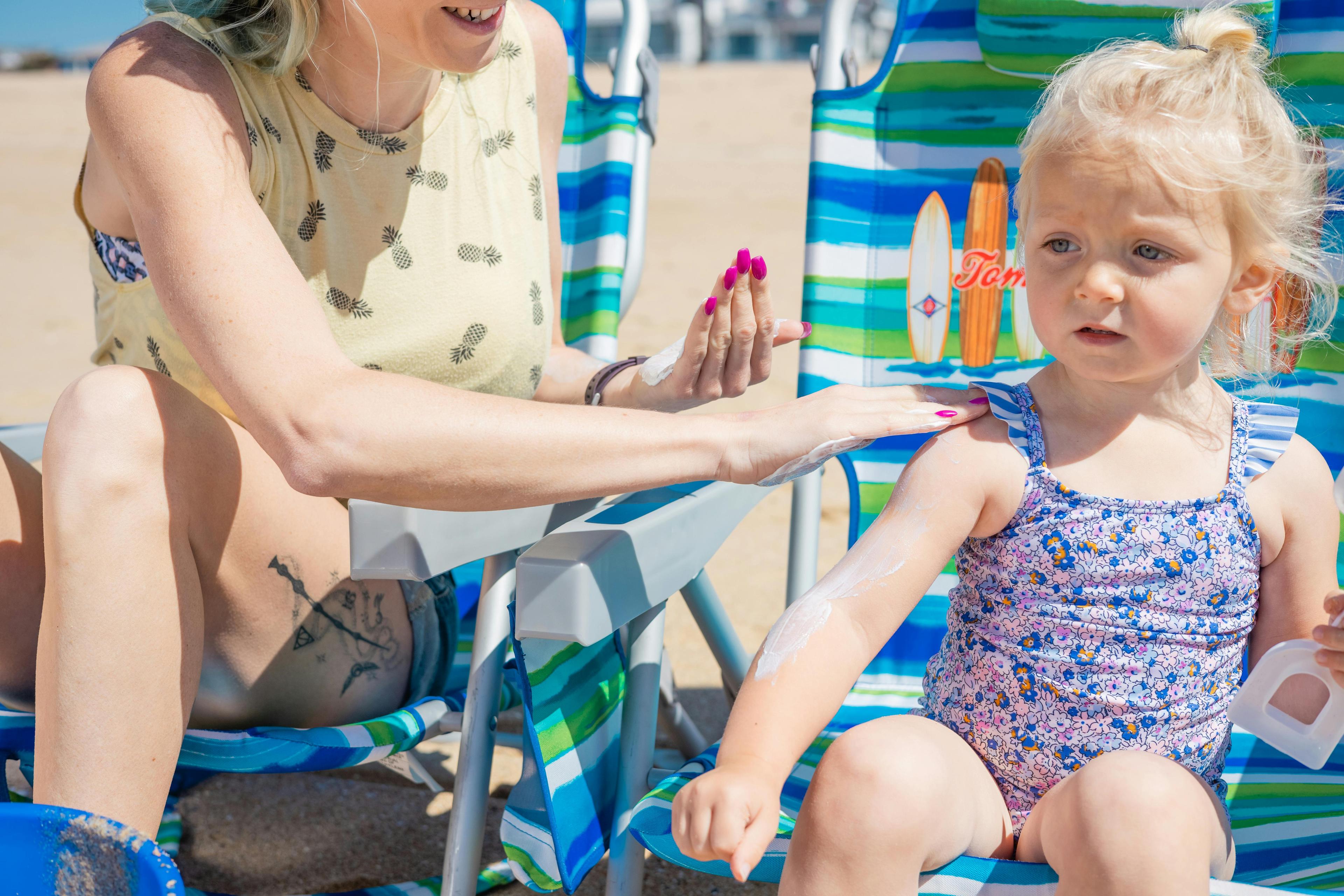


5 Summer Tips for Kids to Stay Healthy
4 March 2024
Summer is a magical time of year for kids. They have the long school summer holidays to look forward to and lighter, longer days filled with friends, outings and activities. There is just so much fun to be had!
Regular routines involving bedtimes and mealtimes get easily overlooked by adult carers and kids alike as we slip into new habits encouraged by the additional free time.
But we want our kids to enjoy their summer of fun, remain happy and healthy, and make the most of it. With this in mind, consider our 5 Summer Tips for Kids to Stay Healthy.
Wear Sunscreen
Sunscreen isn’t just for summer and sunny days! The sun can burn your skin even on cloudy days, and sunburn increases your cancer risk.
Skincare experts in the NHS and the British Skincare Foundation recommend that in the UK, between March and October, children over six months should wear sunscreen with a minimum SPF30 daily to protect their delicate skin from harmful UV rays. (Adults too!)
Sunscreen should be water-resistant if appropriate and cover all exposed areas of skin; suitable clothing, hats and sunglasses give additional protection. Make sure you re-apply as directed on the bottle if you're out in the sun all day.
NOTE: Infants under six months should be kept out of direct sunlight altogether!
Keep Active
Kids need lots of physical activity to strengthen bones and muscles and maintain a healthy heart and lungs.
Experts recommend at least 60 minutes a day of aerobic exercise for kids, such as running, swimming, cycling, etc.; strengthening activities include jumping, football, martial arts, etc.
Involve the whole family in keeping active, and reduce long periods of sitting and screen time for everyone.
Stay Hydrated
Keep kids well-hydrated, particularly on hot and active days.
Avoid fizzy and sugary drinks, and stick to milk or water. The recommended average fluid intake is a minimum of 6-8 glasses daily.
Did you know that hydration is vital for all sorts of reasons? Good hydration -
● Encourages better focus and increased concentration levels
● Keeps muscles and joints lubricated with fewer cramps or joint pain
● Helps regulate body temperature
● Enables toxins and waste to flush out of the body in urine and sweat
● Maintains a good blood volume and flow around the body
● Aids saliva production, which helps break down the food we eat
Encourage your kids to carry a clean, filled water bottle; adults can be a good example by doing the same.
Get Enough Sleep
It’s easy to slip out of that healthy sleep routine during the summer when the days are longer and the nights are lighter. If it helps, make minor holiday adjustments to bedtime, but keep to your routine.
Different age groups have different sleep needs. However, creating and maintaining a good sleep routine helps children settle to sleep and remain asleep, therefore getting the recommended hours they need to function well during the day. (Additionally, if your child sleeps well, everyone in the household will likely sleep better, too!)
Good sleep is linked to better mood and behaviour, focus and learning, memory, and attention. Your child will perform better at school and be good company during holidays.
Bites, Stings and Allergies
Spring and summer, the seasons of birth and growth, are, unfortunately, also full of allergens. Hayfever, runny noses, breathing difficulties, itchy skin rashes, and insect bites and stings cause misery if you don’t make appropriate preparations for affected kids and can even be life-threatening!
Take suitable precautions so your child’s summer fun continues uninterrupted.
● Stock up on antihistamines, which are available over the counter. If your child takes asthma medication, make sure it’s readily available when needed.
● Shower and change clothing regularly to wash away pollen and debris that might cause an allergic reaction.
● Wear sunglasses if you suffer from red and watery eyes.
● Important: severe allergies can quickly develop into anaphylaxis and need immediate life-saving treatment. If your child has an EpiPen, ensure it’s always available, and call 999 for an ambulance.
Keep your kids healthy. Follow our simple summer tips to ensure your kid’s summer starts fun and stays fun!
